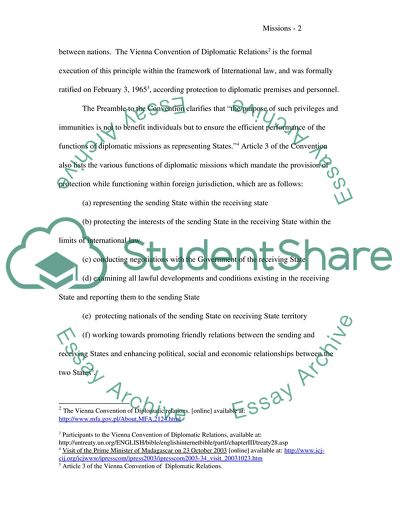Cite this document
(Are Diplomatic Missions Inviolable Essay Example | Topics and Well Written Essays - 4000 words, n.d.)
Are Diplomatic Missions Inviolable Essay Example | Topics and Well Written Essays - 4000 words. Retrieved from https://studentshare.org/law/1704413-are-diplomatic-premises-inviolable
Are Diplomatic Missions Inviolable Essay Example | Topics and Well Written Essays - 4000 words. Retrieved from https://studentshare.org/law/1704413-are-diplomatic-premises-inviolable
(Are Diplomatic Missions Inviolable Essay Example | Topics and Well Written Essays - 4000 Words)
Are Diplomatic Missions Inviolable Essay Example | Topics and Well Written Essays - 4000 Words. https://studentshare.org/law/1704413-are-diplomatic-premises-inviolable.
Are Diplomatic Missions Inviolable Essay Example | Topics and Well Written Essays - 4000 Words. https://studentshare.org/law/1704413-are-diplomatic-premises-inviolable.
“Are Diplomatic Missions Inviolable Essay Example | Topics and Well Written Essays - 4000 Words”, n.d. https://studentshare.org/law/1704413-are-diplomatic-premises-inviolable.


